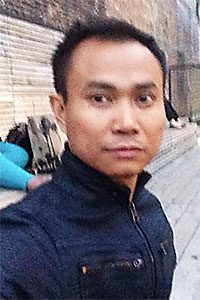
What's next for Thailand after things went according to (the military regime's) plan, with junta leader Prayut Chan-o-cha as our prime minister?
Is the country making a transition towards a hybrid democracy abiding by the rule of law or a "democratic dictatorship", a term used recently by regime-appointed senator Seree Suwanpanont, strictly governed by "rule by law". Perhaps it is the latter.
For one thing, politics will be as tricky and self-serving as it has been for the past decades. Political horse-trading is ongoing in the aftermath of the March general election as parties in the coalition government to be led by the pro-regime Palang Pracharath Party (PPRP) fight for "A-list" cabinet portfolios.
But what is trickier than politics is dubious law enforcement by public independent organisations, particularly the Election Commission (EC), where the military regime has embedded its influence. A string of their actions taken in the lead up to, and the aftermath of, the election have made people with sensible and non-biased minds question, again, fairness in their law enforcement.
These actions show how authorities can execute the law in a way that suits their needs. That is rule by law, not the rule of law which should have guaranteed fairness and predictable application.
The list of questionable and disputed cases of law enforcement taken by these agencies is too long to be laid out here. But they have all caused wide political impact. These include the disqualification of two MP candidates from the Pheu Thai and Future Forward parties based on weak evidence and disputed grounds.
The other case is the EC's use of a calculation formula to reward a party-list seat to each of 10 pro-junta small parties whose popular vote failed to meet the electoral threshold. That seat allocation overturned the poll victory, giving the pro-junta political camp an ultra-slim majority in the Lower House.
Meanwhile, there have been numerous lawsuits against anti-regime politicians. Observers view them as a political purge. It is a fact that those who are not supporters of the junta have found hard to swallow.
Let's take a closer look at one particular case to see how rule by law is applied: the shareholding case against Future Forward Party (FFP) leader Thanathorn Juangroongruangkit.
The EC accused Mr Thanathorn of violating the constitution by keeping shares in a media company while running as an MP candidate. But the agency did little investigation into the case. Instead, it abruptly petitioned the Constitutional Court to have him disqualified from being an MP.
The main arguments in the case are not complex: the timing of his share transfer and the type of document used for the transaction.
Under the Civil and Commercial Code, a share transfer document is recognised as legally valid for stock transactions. And Mr Thanathorn used this paperwork to prove that he transferred all the shares on Jan 8 this year prior to his contesting in the polls as required by law.
But the EC suspected the document could have been backdated. It argued the transfer could actually have taken place later, on March 21, the date the company submitted its annual shareholding report, known as the Bor Or Jor 5 form, to the Department of Business Development (DBD).
These disputes could have been settled easily by using previous court rulings on the same issue as precedent. Among them is the Constitutional Court's ruling in October last year which cleared Foreign Minister Don Pramudwinai, who served in the military government, of a similar accusation. The EC accused Mr Don of violating the constitution which bars ministers and their spouse from holding shares in companies in excess of 5%.
The case stemmed from an allegation that Mr Don's wife failed to reduce her shareholdings in two companies to meet the rule within 30 days after the constitution took effect on April 6, 2017, but did it six months later when the companies submitted their Bor Or Jor 5 forms to the DBD.
So, the disputes in the case against Mr Don were obviously identical to those concerning the FFP leader -- the timing of the transactions and the evidence examined.
His wife presented the same type of document that Mr Thanathorn used as evidence for the timing of her share transfers. And the court in its ruling accepted it as legally valid, overruling the EC's use of the Bor Or Jor 5 form as evidence.
Given the identical nature of the cases, the EC should have dropped the accusation against Mr Thanathorn. But it didn't.
And while the Constitutional Court did not suspend Mr Don from his job while the case underwent trial, it suspended Mr Thanathorn from his MP duty.
Cynical observers view this case as part of a broad political assault against the FFP and its executives. We should not bother to delve into its technicalities, they suggested, because it would be a waste of time. Political cases are used to serve political goals, they said, and so the legal details are usually compromised or wilfully distorted.
Given that this is just one of many cases filed or to be filed against Mr Thanathorn and other FFP executives, observers believe this is a long game with the ultimate goal of burying the political future of both its rising-star politicians and the party.
Sensible people as well as FFP supporters must have observed this and other developments with distress and disappointment.
This kind of law enforcement could have deepened their mistrust, resentment and anger towards the state agencies and the "democratic dictatorship" regime of government.
It is beyond doubt that the post-poll politics will be more divided, murkier and messier driven by the unpredictability of and unfairness in the application of law.
Surasak Glahan is deputy op-ed editor of the Bangkok Post.
